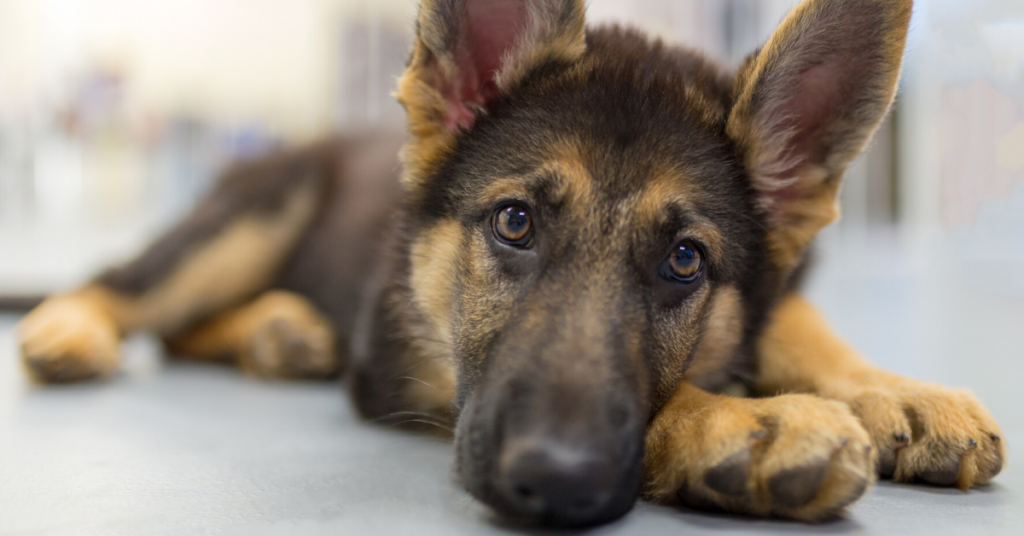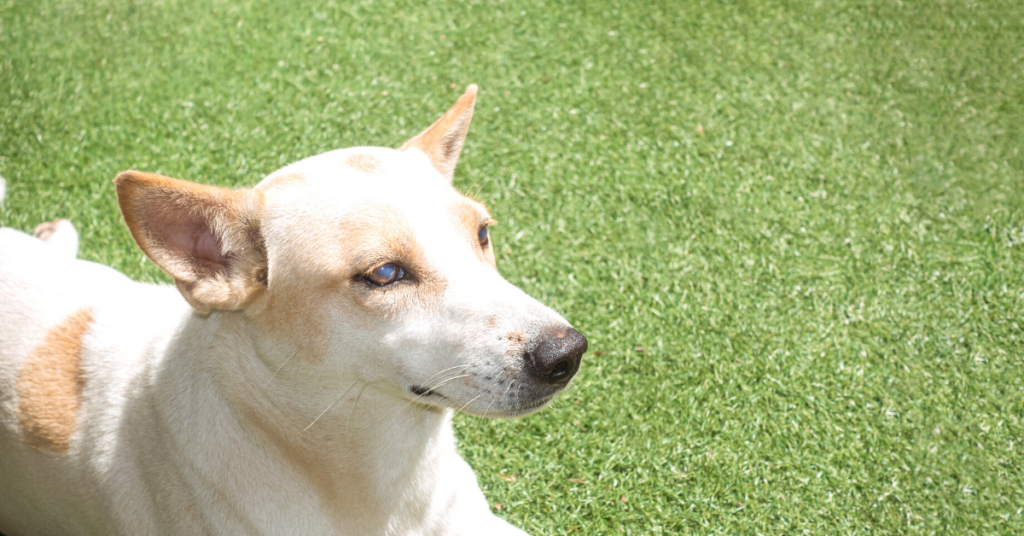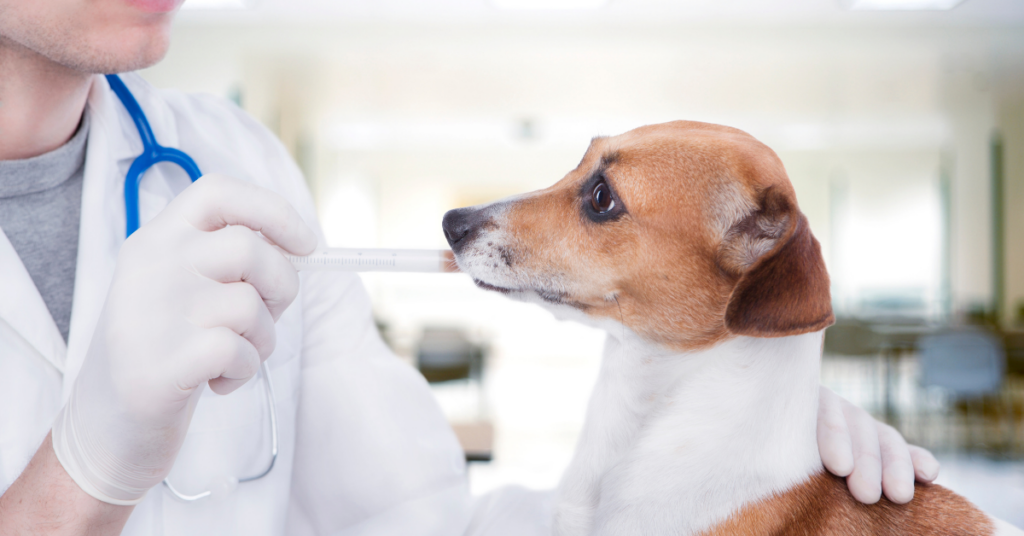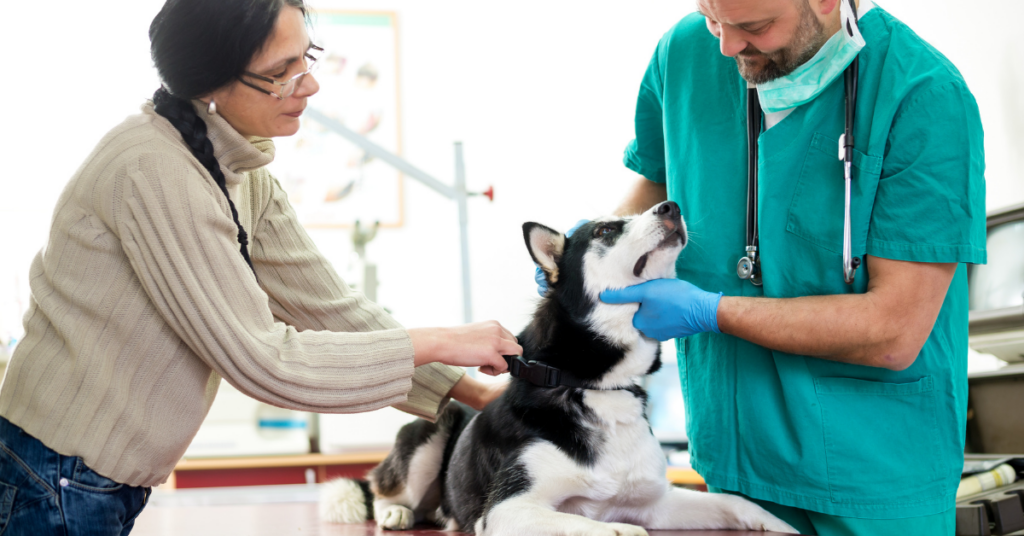What is Myasthenia Gravis in Dogs?
Myasthenia gravis in dogs is a condition that affects muscles, and muscle strength.
Certain dog breeds have a disposition to suffer from this disease in an inherited or congenital form.
These breeds include Smooth Fox Terriers, Jack Russell Terriers, Springer Spaniels, and Smooth Haired Miniature Dachshunds.
What is Myasthenia Gravis?

Myasthenia Gravis is a disease that occurs when the delivery of signals from the nerves to the muscles breakdown.
Even though this disease affects dog breeds with a predisposition, it is a disease that is more often acquired.
When acquired, this immune-mediated disease is complex with many factors at play, such as an overactive immune system.
This could be triggered by cancer, an immune system disease, or perhaps an under-active thyroid gland.
Dogs with myasthenia gravis will begin to suffer extreme muscle weakness and fatigue.
In many cases dogs will find it hard to stand or exercise adequately to keep their muscles strong
Signs of Myasthenia Gravis in Dogs

Common symptoms are progressive weakness, change in voice, and an inability to close the eyes, even when sleeping.
Other symptoms include difficulty breathing, excessive drooling, and muscle cramping during mild exercise.
Some dogs will be unable to exercise and will collapse after a short time of exerting themselves.
Many dogs with this condition will develop megaesophagus, meaning the esophagus becomes enlarged.
If this happens the esophagus will begin to retain food destined for the stomach, meaning food will easily slide back up the throat.
The return of the food will happen without abdominal muscle contraction, increasing the danger of aspiration pneumonia to occur.
What Causes Myasthenia Gravis?

The acquired form of this disease is caused by a malfunctioning immune system.
Normally the immune system will produce antibody levels meant to fight off foriegn bodies, and disease.
In the case of myasthenia gravis the immune system will attack the acetylcholine receptors in the dog.
No one is sure why the immune system becomes misguided in this way; it’s thought to be triggered by cancer.
Diagnosing Myasthenia Gravis in Dogs

Providing a diagnosis for this disease is not always a straightforward process.
The first test is usually a blood test that will show if antibodies are present which are directed at the acetylcholine receptor.
Another test is the Tensilon test where a short term antidote is injected into the dog to improve muscle strength.
If the dog is able to regain muscle function after this injection it is a sign they have myasthenia gravis.
This antidote is temporary and will wear off quickly.
Another test will be to direct a small current of electricity to a nerve or muscle to see if it reacts.
Under these circumstances the animal will be anesthetized, to keep it from feeling pain.
Other tests can be radiograph x-rays, to look for evidence of cancer.
How to Treat Myasthenia Gravis

It may be necessary for dogs suffering from myasthenia gravis to be put on medications for the rest of their lives.
Medication that will suppress the immune system making sure that it does not produce acetylcholine receptor antibodies.
Other drugs may need to be administered to help the pet to regain some strength in it’s muscles.
Other things that will need to be taken into consideration is how to administer food and water to your dog.
Smaller, more frequent meals placed at an elevated level along with the water bowl.
When to See a Veterinarian

If you notice a change in your dog’s voice, notice any weakness, coupled with the inability of them keeping their eyes closed when sleeping.
If they seem unable to exercise like they have in the past then it is a good time to call your veterinarian.







